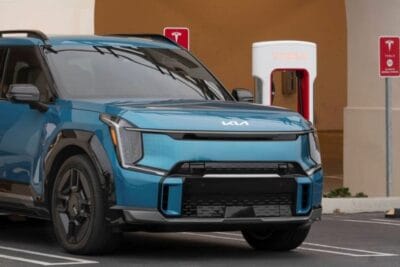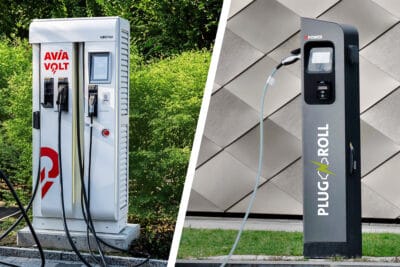Plug Power presents stationary fuel cell system to charge BEVs
Plug Power is looking to secure high-power charging in remote niches of the world and has unveiled a stationary fuel cell system for charging commercial EV fleets. 18,000 gallons of liquid hydrogen combined with a new megawatt-scale fuel cell solution provides 60 MWh on site.
According to Plug Power, that is enough to charge more than 600 EVs. The company targets commercial operators who may be delaying or forgoing EV adoption due to challenges such as grid restrictions, clean power requirements or long waits for grid infrastructure upgrades, so the statement.
“Customers are approaching Plug for hydrogen power generation options, and we expect this offering to be one of the largest applications for stationary use this year,” said Luis Crespo, General Manager of Applications and Global Accounts for Plug Power.
As for delivering hydrogen to refill the tanks at locations opting to use fuel cells (over renewable energy solutions) to power charging stations to energise EVs, Plug Power may soon rely on hydrogen fuel cell trucks. In late 2022, they placed an order with Nikola to deliver 75 Tre FCEV, which Plug will use to provide liquid hydrogen.
In North America, the company aims to produce 500 tonnes of hydrogen per day by 2025 and globally up to 1,000 tonnes by 2028.
In Europe, Plug Power is best known as a joint venture partner of Renault, with whom it has the joint venture Hyvia. The European business is managed from Plug Power’s new headquarters in the port of Duisburg, Germany. The US company is also active in Asia through cooperation with the South Korean SK Group, which only recently resulted in a joint venture.
Plug Power is currently at the Advanced Clean Transportation (ACT) Expo and has a 3D model of the new fuel cell, hydrogen dispenser with simulated refuelling, and fuel cell-powered Hyvia delivery van on display.





0 Comments